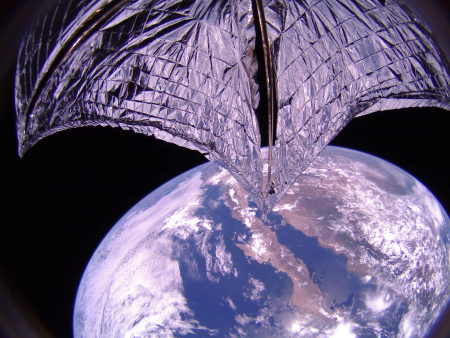Japanese private smallsat rocket company launch failure
Capitlism in space: Interstellar Technologies, a Japanese private smallsat rocket company, experienced on July 27 its third suborbital launch failure in four attempts.
The vehicle only reached an altitude of 13 kilometers following the launch at 4:20 p.m., falling into the sea some 9 kilometers (about 5.5. miles) offshore from Taiki, Hokkaido, its test site, Interstellar Technologies said. The rocket is the same model as Momo-3, measuring about 10 meters long, 50 centimeters in diameter and weighing 1 ton.
After failed attempts in 2017 and 2018, the startup finally found success with its third launch in May, with the rocket reaching an altitude of around 113 km before falling into the Pacific Ocean.
The failure occurred when an onboard computer detected something wrong and shut the engine down.
Capitlism in space: Interstellar Technologies, a Japanese private smallsat rocket company, experienced on July 27 its third suborbital launch failure in four attempts.
The vehicle only reached an altitude of 13 kilometers following the launch at 4:20 p.m., falling into the sea some 9 kilometers (about 5.5. miles) offshore from Taiki, Hokkaido, its test site, Interstellar Technologies said. The rocket is the same model as Momo-3, measuring about 10 meters long, 50 centimeters in diameter and weighing 1 ton.
After failed attempts in 2017 and 2018, the startup finally found success with its third launch in May, with the rocket reaching an altitude of around 113 km before falling into the Pacific Ocean.
The failure occurred when an onboard computer detected something wrong and shut the engine down.

